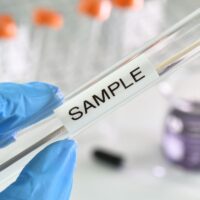The Impact of Oral Swab Testing on DUI Arrests in California

In the realm of DUI enforcement in California, technological advancements have introduced a new method: oral swab testing. This innovation is transforming how law enforcement agencies detect and prosecute DUI cases involving drugs, otherwise known as Driving Under the Influence of Drugs or DUID. See below for a brief guide regarding oral swab testing in California. If you have been arrested for DUI or DUID in Ventura County, call the Law Office of Paul Tyler for help from an experienced and successful Oxnard DUI defense lawyer.
Understanding Oral Swab Testing
Oral swab testing, also known as a saliva test, is a procedure used by police officers to detect the presence of drugs in a driver’s system. This test involves taking a saliva sample from the driver, which is then analyzed for various substances, including marijuana, cocaine, amphetamines and methamphetamine, opiates and more. The ease and speed of this testing method make it an appealing tool for law enforcement.
Legal Basis in California
In California, the use of oral swab testing in DUI cases is legally allowed. The state has been at the forefront of implementing this technology in traffic stops and DUI checkpoints. This move is in response to the growing concern over drug-impaired driving, particularly following the legalization of recreational marijuana.
Impact on DUI Arrests
The introduction of oral swab testing has significant implications for DUI arrests in California:
-
Increased Detection of Drug Impairment: Unlike alcohol, which is commonly detected through breathalyzer tests, drugs require more complex detection methods. Oral swabs have made it easier for officers to identify drivers under the influence of drugs.
-
Rapid Results: Oral swab tests can provide results within minutes, allowing law enforcement to make quicker decisions at the scene. Other drug tests, such as blood tests, can take weeks to return results.
-
Enhanced Prosecution: With the objective data provided by these tests, prosecutors may have stronger evidence in DUI drug cases.
Concerns and Legal Challenges
Despite its advantages, oral swab testing is not without its controversies:
-
Accuracy and Reliability: Questions have been raised about the accuracy of these tests, particularly in correctly identifying the level of impairment. While an oral swab test can detect the presence of certain drugs in the person’s system, the test cannot measure the amount of the substance.
-
Privacy Concerns: Some argue that invasive saliva testing infringes on personal privacy rights. The police cannot require a person to submit to an oral swab test, but this fact might not be made clear to the individual at the time.
-
Legal Implications: Drivers arrested based on these tests may have grounds for legal challenges, particularly if the tests are proven to be unreliable or administered improperly.
Defense Strategies
For individuals facing DUI charges based on oral swab results, experienced criminal defense attorneys like Paul Tyler can employ various strategies:
-
Challenging the Test Accuracy: Questioning the reliability of the test results can be a pivotal part of the defense.
-
Examining Test Administration: Ensuring that the test was administered correctly and by qualified personnel is crucial.
-
Evaluating the Legality of the Traffic Stop: The circumstances of the initial traffic stop can also be scrutinized.
Call Paul Tyler for Help After a DUI or Drug Arrest in Oxnard or Ventura County
Oral swab testing marks a significant shift in DUI enforcement in California. Like field sobriety tests, oral swabs make it easier for police to arrest a suspect and force them to submit to a chemical test of their blood, building a case against the defendant even before an arrest is made. Understanding your right to refuse an oral swab and the consequences of any testing is critical to defending against any subsequent prosecution.
If you are facing criminal charges in southern California, get trusted, professional legal help by contacting the Ventura offices of Paul Tyler for a free consultation at 805-889-9000.



